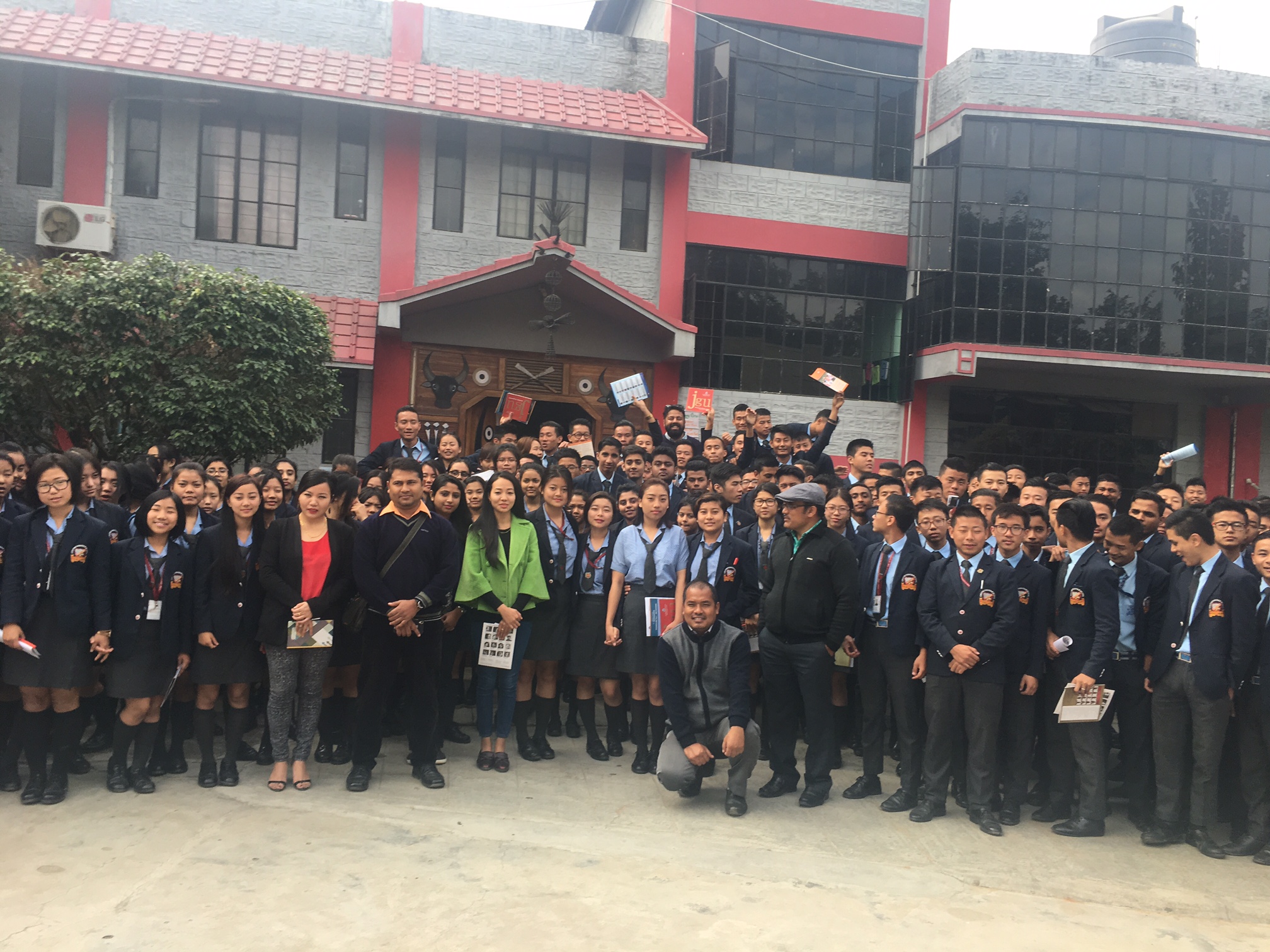A Series of Fortunate Events

At a conference last year, I happened to meet a few educators from across the country. They represented the best schools from all corners of India. The conversations ranged from curriculum to co-curricular to sports to teaching methods and research. It is 2017 and luckily for us most high schools across India aren’t only focusing on academics but also on a holistic growth of the student. It is important from the schools perspective to realize that as much as it is their responsibility to educate a child on the importance of science, math and the arts, it is equally important to allow them to pursue activities outside of the class.
At this event I took turns to meet with teachers, principals, counselors and school owners, I found a gaping hole in the representation of schools from around our country. The severe lack of participation of schools from the North East (apart from Assam) and what seemed as if it were a limited effort to include them. Not just at this gathering of educators but at almost EVERY conference I attend – there is little of no participation from the North East. Information sharing is a two way process. And, without dialogue and conversation, we will not be able to even begin the process of making higher education more accessible for the students of the seven sister states (Arunachal Pradesh, Assam, Meghalaya, Manipur, Mizoram, Nagaland and Tripura). I once remember taking part in a quiz, many moons ago, and in the preliminary round, a written one, we were asked to name the seven sister states. I wasn’t surprised then at some teams getting the answers wrong, I am baffled now with the age of the internet and knowledge sharing, how little we know and do to ensure inclusivity!
I began making calls last year to find out about the schooling system in Nagaland and the responses were extremely positive. Several schools run under the state board but there is a strong presence of ICSE and CBSE schools across the state. Students from around Nagaland (now more than ever before) are keen to know more about higher studies opportunities not just across India but across the world. And, in the last few months there has been a movement of universities from abroad that are keen on meeting with interested and deserving candidates. In the words of Bob Dylan, The times they are a changin’?
Diversity in a classroom counts for a whole lot more than what we think. Sharing one’s experiences, building bridges through those experiences and knowledge sharing is the key in making our students far more concerned and better informed citizens. While text books serve as important guidelines to learning, in today’s world a mix of experiential learning is a must in our classrooms. And, there is no right or wrong time to work towards progress. There is no sign on the wall that ought to push those responsible for higher education in this country to begin working in areas that have had limited access (compared to the rest of the country).
Unfortunately, Nagaland is amidst a political crisis this week. There has been a heavy mobilization of young people to block roads and not to allow normal proceedings. I have had the opportunity to walk on the streets and interact with several such ‘peaceful protesters’. Many of whom don’t have a college degree, many of whom have dropped out and some of whom are still hopeful of going to university. Among the many responsibilities for those who run higher education in this country, both public and private, it is time to once again go back to the drawing board to see how better we can include and educate. Starting a movement, perhaps with better scholarship policies, is one way to begin – but there is much to be done. High school infrastructure needs a massive push; teachers need constant training, sports scholarships will allow the talented to pursue their dream and to study alongside. And, though it was unfortunate that a couple of days on this trip restricted our movement – it also allowed us into the homes of some of the most wonderful people in Dimapur and Kohima. We got access to talk to the Principals and Fathers of arguably the finest schools, without them having to be worried about class! We spent our breakfasts and lunches, understanding the tribes and how they function in the state, and most importantly their view on education – primary, secondary and higher. Long debates and conversations about negligence and racism and promises; a real eye opener! The willingness to make a difference, especially when like-minded people come together will never halt that process, regardless of strikes and bandhs and protests! Hence, a series of fortunate events!
On the days where we traveled to schools, I was greatly moved to see the enthusiasm and aspirations of the students. I am extremely hopeful that many of them will take the plunge and apply to universities and do incredible things with their lives. It takes a conversation to start a dream.
To build an educated and informed India, we ought to begin implementing and not just planning. The present and future both depend on building world-class universities and high schools in India. And, our success lies in making those very institutions accessible.
Think about it.



